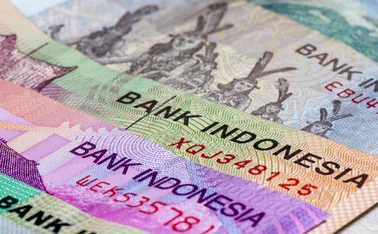
Progress and prospects of China’s pilot Free Trade Zones
An interview with China Academy of Social Sciences' Institute of Economics director Pei Changhong

How is financial reform of the China (Shanghai) Pilot Free Trade Zone (SHFTZ) progressing?
The journey of financial reforms in the SHFTZ can be divided into two phases: before and after the zone was expanded. The pre-expansion phase covers the period from October 2013 to December 2014, while the post-expansion phase began in 2015. Before the expansion, the number of newly established financial institutions grew rapidly. As of the end of 2014, 87 financial license holders and a batch of financial service providers had moved into the SHFTZ. In spite of the rapid settlement of financial institutions in the SHFTZ, the development of financial business in the zone fell short of expectations, with the growth rate of financial business obviously lagging behind that outside the zone. People from all walks of life focused on the convertibility of the capital account, market-based interest rates and a freeing up of the financial service sector in the SHFTZ. However, the progress of these reform items was slower than expected.
Expanding the territorial area of the zone is not the solution to everything. Various elements need to be put in place as preconditions for financial reform and opening up the SHFTZ. First, a mechanism should be built for interaction between the SHFTZ financial reforms and Shanghai's efforts to turn itself into an international financial centre. Second, more specific measures should be rolled out to encourage the opening-up of the capital account. Third, market-based reform of the interest rate should be further deepened. Fourth, more favorable policies should be introduced for financial development. Fifth, financial infrastructure construction should be stepped up by improving the international financial asset trading platform and building a convenient and efficient payment settlement system. Sixth, innovations should be made in the financial supervision system of the SHFTZ.
What about financial reforms in the Tianjin, Guangdong and Fujian Free Trade Zones?
The China (Tianjin) Pilot Free Trade Zone (TJFTZ)
Industry-finance cooperation and innovation will be a feature of the TJFTZ financial reforms. The reforms are expected to facilitate the combination of financial capital and industrial capital; the combination of financial innovation and emerging industries; and the combination of financial openness and introduction of emerging industries in the mode through which both industries and financial services will develop. New forms of integrated financing covering the entire industry chain will play a crucial role in the TJFTZ financial reform and development.
China (Guangdong) Pilot Free Trade Zone (GDFTZ)
To promote foreign trade development, transformation and upgrading is one of the major objectives of the GDFTZ financial reform. In other words, the aim is to support the sustained development of Guangdong's foreign trade, by using financial innovation. Guangdong-Hong Kong-Macau financial cooperation is supposed to be a feature of the GDFTZ financial reform. In particular, financial openness to Hong Kong and Macau will be the focus in the Qianhai and Hengqin areas of the GDFTZ. It is important to promote innovative cross-border renminbi business among Guangdong, Hong Kong and Macau, expand cross-border use of the renminbi and carry out two-way renminbi financing. Other important reforms include exploring ways to establish a mechanism enabling mutual recognition of financial product offerings; two-way capital circulation and market connectivity among Guangdong, Hong Kong and Macau; facilitating currency conversion for investment and financing in the three regions; making the financial services of non-banking institutions more accessible; and promoting the growth of consumer finance and e-payments. We should also explore the possibility of exercising a new model for home- and foreign-currency account management, and establish a new-typed factors trading platform targeted at Hong Kong, Macau and other parts of the international community.
China (Fujian) Pilot Free Trade Zone (FJFTZ)
Cross-Straits financial cooperation will become a feature of the FJFTZ financial reforms. China should allow banking institutions in the FJFTZ to roll out cross-border renminbi borrowing and other businesses with their Taiwan counterparts and encourage Taiwanese banks to extend cross-border renminbi loans to enterprises or projects located in the FJFTZ. It is also necessary to support the banking sectors on both sides of the Taiwan Straits to cooperate in equity investment in the zone and prepare the ground for Fujian equity exchanges to expand the scope of business with a view to providing comprehensive financial services for Taiwan enterprises. Finally, there is a need to strengthen cross-Straits cooperation in dispute mediation, arbitration and litigation, as well as the protection of financial consumers' rights and interests by introducing diverse dispute settlement means.
Pei Changhong is director of the Institute of Economics, China Academy of Social Sciences
Only users who have a paid subscription or are part of a corporate subscription are able to print or copy content.
To access these options, along with all other subscription benefits, please contact info@centralbanking.com or view our subscription options here: http://subscriptions.centralbanking.com/subscribe
You are currently unable to print this content. Please contact info@centralbanking.com to find out more.
You are currently unable to copy this content. Please contact info@centralbanking.com to find out more.
Copyright Infopro Digital Limited. All rights reserved.
As outlined in our terms and conditions, https://www.infopro-digital.com/terms-and-conditions/subscriptions/ (point 2.4), printing is limited to a single copy.
If you would like to purchase additional rights please email info@centralbanking.com
Copyright Infopro Digital Limited. All rights reserved.
You may share this content using our article tools. As outlined in our terms and conditions, https://www.infopro-digital.com/terms-and-conditions/subscriptions/ (clause 2.4), an Authorised User may only make one copy of the materials for their own personal use. You must also comply with the restrictions in clause 2.5.
If you would like to purchase additional rights please email info@centralbanking.com








